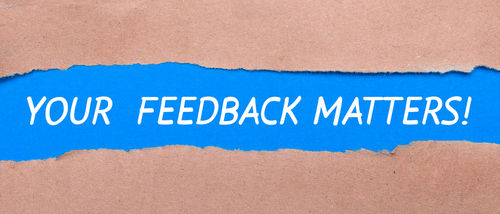BCIA Neurofeedback Certification for Smart People
- BioSource Faculty
- Apr 27, 2023
- 5 min read
Updated: Aug 31, 2023

Neurofeedback is an effective treatment for various conditions, such as ADHD, anxiety, depression, and epilepsy. Neurofeedback can also help improve cognitive functioning and sleep quality. Because of its effectiveness, neurofeedback is an in-demand field with many job opportunities. For licensed healthcare professionals, neurofeedback is easily integrated into your existing clinical practice, for example, psychotherapy, addiction treatment, and health psychology.
Click on our narrator icon to listen to this post.
The Steps for Earning Your BCIA Neurofeedback Certification

Visit BCIA's website and select the Neurofeedback Entry Level or Neurofeedback Technician pages. Be sure to carefully review the prerequisites, certification requirements, and how each step will be completed. This will give you a better idea of the costs and the time it takes for completion.
Submit your Application, all Documents, and Filing Fee simultaneously, not in installments. You may take a BCIA-approved Neuroanatomy course any time before you file to take the BCIA Certification Exam. BCIA encourages you to take Neuroanatomy before your didactic workshop to help you better understand the new terms you will encounter.
Didactic Training
You will need to complete a BCIA-Accredited Training Program. BCIA-Approved Neurofeedback Training Programs are available through universities and vendors like BioSource Software. If this is a realistic option for you, we recommend an in-person or hybrid course that includes some portion of the course in person over virtual instruction. Virtual courses can be a good option for many, especially if one can access equipment and guidance from a seasoned professional.
If you choose a virtual course, our $500 BCIA-accredited Neurofeedback Tutor is one of your most affordable options and one of the few designed by full-time university educators.
Neuroanatomy
You can satisfy BCIA's Neuroanatomy requirement with BCIA-approved courses in Behavioral Neuroscience, Neuroanatomy, Neurophysiology, or Physiological Psychology. BCIA accredits our $150 Physiological Psychology course to teach Neuroanatomy.
Mentoring
BCIA requires 25 mentoring contact hours (2 must be face-to-face) for Entry-Level applicants and 10 hours for Technician applicants. Face-to-face hours can be virtual, using platforms like Zoom. We encourage you to download BCIA's Neurofeedback Mentoring Handbook.
You negotiate that price with BCIA-accredited mentors listed on BCIA's Find a Mentor page. You may select more than one mentor.
John S. Anderson (qeegjohn@gmail.com) from our staff is one of BCIA's approved mentors.

Entry-Level
Entry-Level Mentoring reviews:
(1) 10 sessions of self-regulation (you are the patient or the client and can even hook up yourself and send printouts of the sessions to the mentor for review)
(2) 100 patient/client sessions where you are hooking up a client and running a complete session.
(3) 10 case study presentations which are fully detailed patient/client stories from intake and protocol selection/adjustment through discharge. These cases may be presented to you by your mentor, or they may be a client you have not yet reviewed with your mentor. This is the only mentoring that can easily be done in an online group setting. Candidates may use up to 5 BCIA Neurofeedback Mentoring webinars to complete 5 contact hours and 10 case studies.
BCIA's Neurofeedback Mentoring Handbook contains logs for documenting these three activities. You will submit your logs when you file your Application for Neurofeedback Certification.
Technician
Technician Mentoring reviews 20 patient sessions to learn basic equipment, electrode placements, and personal self-regulation skills.
BCIA Fees
Entry-Level
You must submit a completed BCIA Application for Certification and the required fees. BCIA charges Filing ($150) and Certification ($300) fees. All exams are taken using an online proctoring service, and you have to pay $20 for their services. Upon final certification, no additional fees are paid until recertification occurs 4 years later.
BCIA reduces the Filing fee to $50 for applicants who can document current enrollment in an advanced degree program at a regionally accredited academic institution in a BCIA-approved healthcare field. BCIA lowers the Certification fee to $100 if this is your second BCIA certification.
Technician
BCIA charges Filing ($150) and Certification ($100) fees. You also have to pay an exam proctor $20 directly.
Once your application has been reviewed and approved, BCIA will award your Certification in Neurofeedback.
BCIA Exam
Your exam application and all fees must be paid at least 1 week before your preferred exam date. File your Exam Registration Form, and BCIA will connect you with an online proctor to register in their system. This service allows you to take your exam from anywhere, including your own computer, with no travel required. Our Neurofeedback100 Testing Service can increase your confidence as you prepare for BCIA's neurofeedback exam.
Equipment
Don't overlook used equipment when you search for neurofeedback systems. If you plan to offer qEEG assessment and more than two-channel training, you will require at least a 19-channel EEG amplifier.
Consider BrainMaster Technologies Inc., Mind Media (NeXus), Mitsar, Thought Technology Ltd. (Infiniti), and their dedicated vendors, including Biofeedback Resources International (BRI) and Bio-Medical Instruments (BMI). Talk to them about the features important to your practice.
Two-Channel Systems
BrainMaster 2EB Plus - Clinical System ($1295).
Thought Technology Ltd. Pro-comp 2 ($2245).
qEEG-Capable Systems
BrainMaster Discovery 24E ($5800). A cap system ($1600). Software suites ($895-$2500). Mind Media NeXus Q32 (waiting on pricing). A single cap ($895). Software suites (waiting on pricing). Mitsar 21 Channel EEG Amplifier with WinEEG Software ($6950). A cap system ($1600). Software suites ($1600-$3395).
The annual meetings of the Association for Applied Psychophysiology and Biofeedback (AAPB), the International Society for Neuroregulation & Research (ISNR), the Mid-Atlantic Biofeedback Society (MABS), and the Northeast Regional Biofeedback Society (NRBS) provide great opportunities to discuss your needs with vendors and take a test drive.
The Benefits of Neurofeedback Certification
When you earn your BCIA neurofeedback certification, you can find neurofeedback jobs in various settings, including hospitals, clinics, the Veterans Administration system, private practices, and research centers. Although Entry-Level Neurofeedback Certification requires at least a bachelor's degree in a healthcare-related field, technicians have no educational prerequisites.
Neurofeedback jobs offer several benefits, including the opportunity to help people improve their lives and the potential to earn a good salary. Neurofeedback technicians can also expect job security as the demand for neurofeedback services will grow in the coming years.
If you're looking for a rewarding career that offers the chance to make a difference in people's lives, get your BCIA Neurofeedback Certification.
Contact BioSource Software today if you want to obtain your BCIA Neurofeedback Certification.
Quiz
Take a five-question exam on Quiz Maker to test your mastery.
Feedback

We value your feedback because we produce these posts for you. Please complete our brief survey to help us improve this service.
Learn More



2. loss of time anchors (e.g.,









Very important to be BCIA certified in NFB. Here, in France, only 2 or 3!